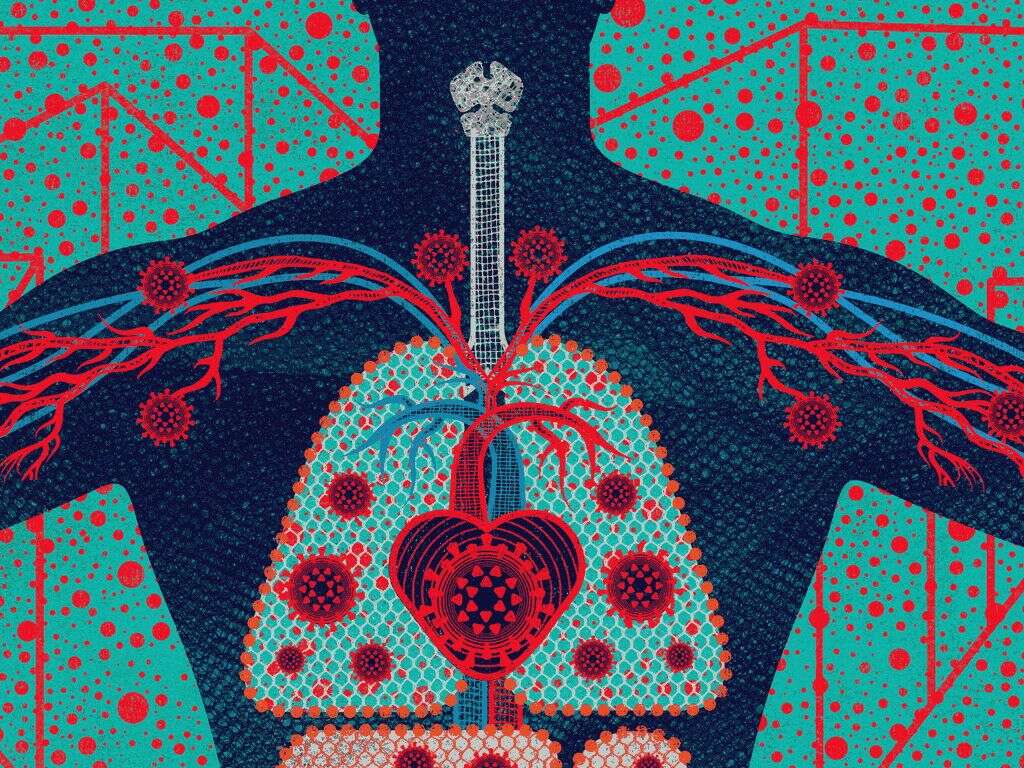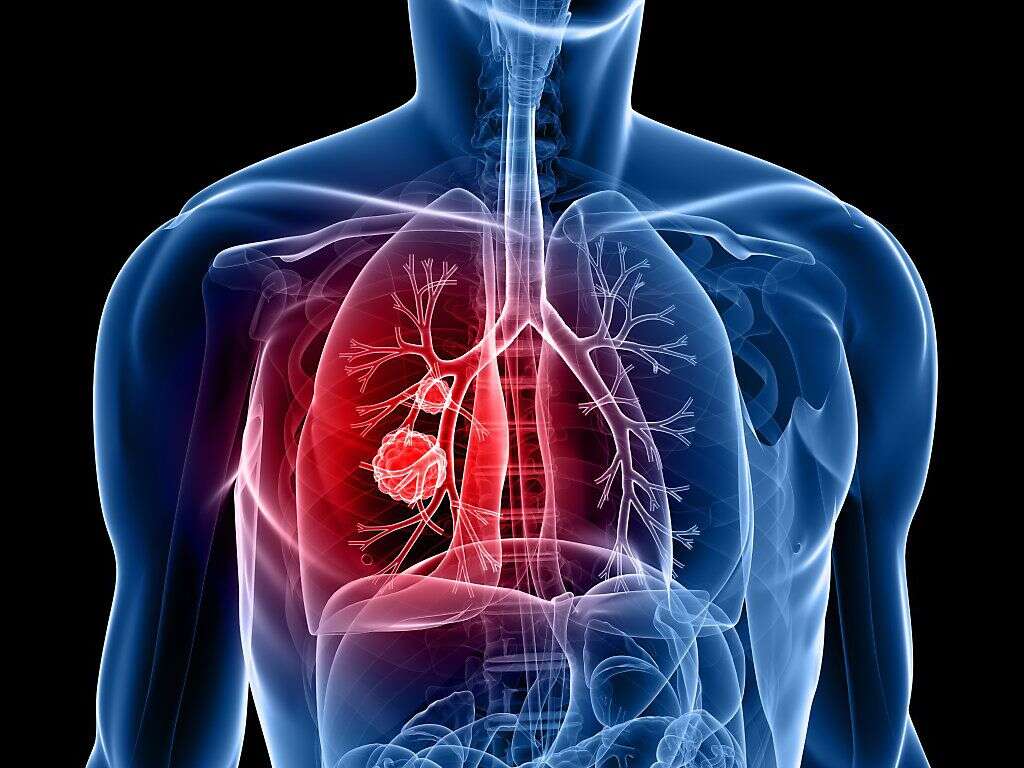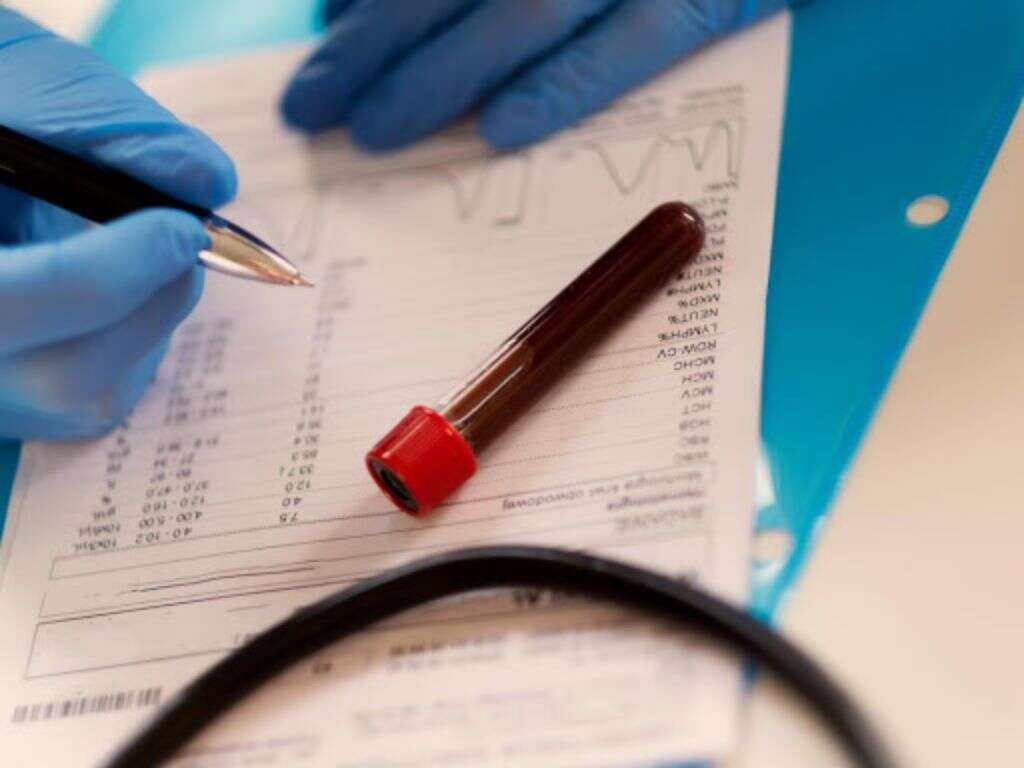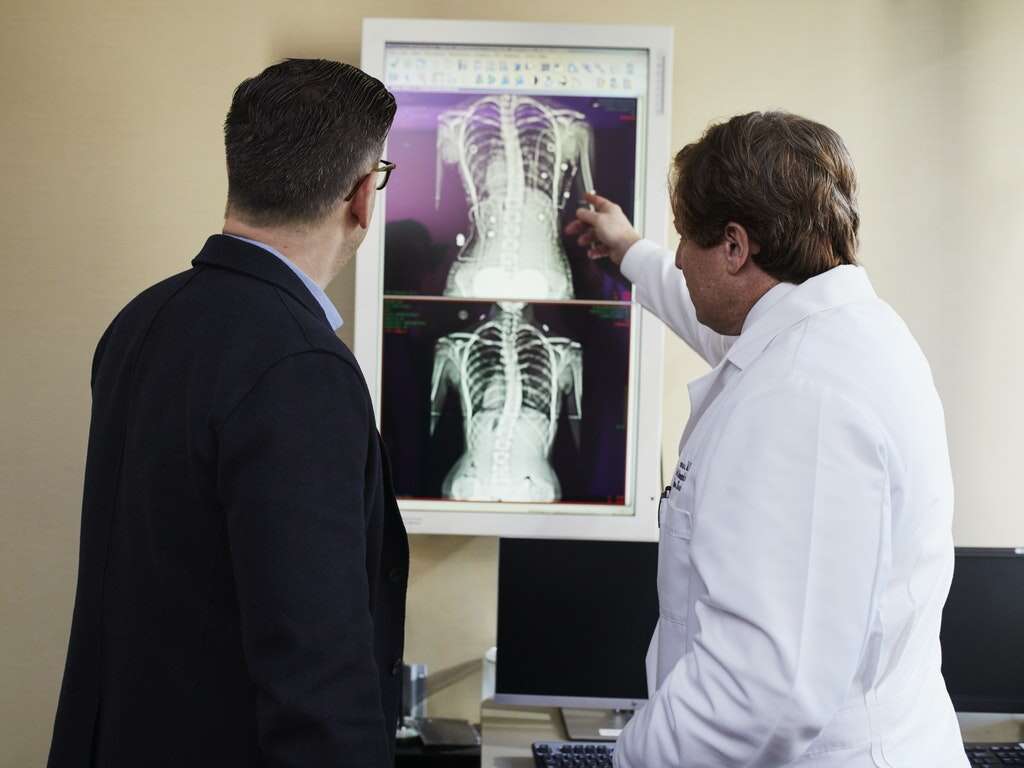10 Pulmonary Fibrosis Symptoms
 Article Sources
Article Sources
- 1. 'Pulmonary Fibrosis - Symptoms and Causes. Mayo Clinic, 6 Mar. 2018, www.mayoclinic.org/diseases-conditions/pulmonary-fibrosis/symptoms-causes/syc-20353690
- 2. 'Breathlessness – Action for Pulmonary Fibrosis. Home, 29 2021, www.actionpf.org/information-support/breathlessness
- 3. Özkaya, Özge. Cough in Pulmonary Fibrosis. Pulmonary Fibrosis News, 29 Aug. 2019, pulmonaryfibrosisnews.com/cough-coughing-pulmonary-fibrosis/
- 4. Melãoc, Alice. Fast Weight Loss in IPF Patients Linked to Poor Prognosis, Study... Pulmonary Fibrosis News, 16 Oct. 2019, pulmonaryfibrosisnews.com/2019/10/16/fast-weight-loss-ipf-patients-linked-poor-prognosis-may-indicate-immune-system-activation/
- 5. Özkaya, Özge. Shallow Breathing (Tachypnea) in Pulmonary Fibrosis. Pulmonary Fibrosis News, 3 Sept. 2019, pulmonaryfibrosisnews.com/fast-shallow-breathing-tachypnea/
- 6. Özkaya, Özge. Fatigue in Pulmonary Fibrosis. Pulmonary Fibrosis News, 25 May 2021, pulmonaryfibrosisnews.com/fatigue-pulmonary-fibrosis/
- 7. Henderson, Wendy. Pulmonary Fibrosis Symptoms: Aching Joints and Muscles. Pulmonary Fibrosis News, 12 Apr. 2017, pulmonaryfibrosisnews.com/2017/04/12/pulmonary-fibrosis-symptoms-aching-joints-muscles/
- 8. Clubbing in Patients with Fibrotic Interstitial Lung Diseases. ScienceDirect.com | Science, Health and Medical Journals, Full Text Articles and Books, www.sciencedirect.com/science/article/pii/S0954611117303608
- 9. Pulmonary Fibrosis: Symptoms, Stages, Causes & Life Expectancy. MedicineNet, www.medicinenet.com/pulmonary/fibrosis/article.htm
- 10. http://boehringer-ingelheim.com. Nutrition. Life with Pulmonary Fibrosis, 3 Dec. 2020, www.lifewithpulmonaryfibrosis.com/living-with-pulmonary-fibrosis/taking-care-of-yourself/nutrition
- 11. D'Souza, Gillian. Peripheral Cyanosis: Symptoms, Causes, Diagnosis, and Treatment. Medical and Health Information, www.medicalnewstoday.com/articles/322560
Pulmonary fibrosis occurs when the lung tissue becomes scarred and damaged. This results in the lung tissue becoming thickened and stiff, making it difficult for the lungs to work effectively. The scar tissue could be caused by various factors, including environmental toxins, radiation treatments and several different medical conditions. In many instances, the cause cannot be determined. This is termed idiopathic pulmonary fibrosis.1‘Pulmonary Fibrosis - Symptoms and Causes. Mayo Clinic, 6 Mar. 2018, www.mayoclinic.org/diseases-conditions/pulmonary-fibrosis/symptoms-causes/syc-20353690
Unfortunately, pulmonary fibrosis can't be reversed. There is also no treatment currently available that can definitively stop the disease's progression. As a result, the treatment focuses on improving the person's quality of life and slowing the worsening symptoms.

Shortness of Breath
Most people with pulmonary fibrosis experience shortness of breath at some point during their illness. The previously compliant lungs lose function as scarring develops. Scarring begins in the alveoli, the tiny air sacs responsible for oxygen exchange in the lungs.
Initially, the shortness of breath occurs during periods of exertion, but it is likely to worsen and appear at rest over time. In time, the person is likely to require oxygen for breathing. There are also a range of different medications that reduce the sensation of breathlessness, while others aim to reduce the anxiety associated with breathlessness.2‘Breathlessness – Action for Pulmonary Fibrosis. Home, 29 2021, www.actionpf.org/information-support/breathlessness

Dry Cough
Another symptom is a dry cough. The cough is non-productive and hacking. This may be the first symptom of pulmonary fibrosis, with dry cough frequently appearing sometime before the other symptoms are noticed.3Özkaya, Özge. Cough in Pulmonary Fibrosis. Pulmonary Fibrosis News, 29 Aug. 2019, pulmonaryfibrosisnews.com/cough-coughing-pulmonary-fibrosis/
The frequent and persistent nature of the cough is a source of huge annoyance and frustration for many people. Unfortunately, the cough is chronic and will worsen over time, occurring primarily due to irritation at the back of the throat.

Fast, Shallow Breathing
Fast, shallow breathing is one of the later symptoms associated with pulmonary fibrosis. As the oxygen exchange system is impeded by scarring, blood oxygen levels fall and the body's tissues do not receive the oxygen they need to survive. The result is shortness of breath and shallow breathing as the person tries to compensate for the deficiency.
Oxygen therapy is used to manage fast, shallow breathing. Typically nasal cannulas are used to deliver an increased level of pure oxygen to the lungs.

Weight Loss
During the early stages of onset, a person typically doesn't have any issues maintaining their normal weight. However, as pulmonary fibrosis progresses, this becomes a lot harder. The weight loss associated with pulmonary fibrosis is described as gradual and unintended.4Melãoc, Alice. Fast Weight Loss in IPF Patients Linked to Poor Prognosis, Study… Pulmonary Fibrosis News, 16 Oct. 2019, pulmonaryfibrosisnews.com/2019/10/16/fast-weight-loss-ipf-patients-linked-poor-prognosis-may-indicate-immune-system-activation/
Weight loss is commonly referred to as a secondary symptom and tends to be associated with fast, shallow breathing. The reasons why weight loss becomes a feature of pulmonary fibrosis are unclear. It is, however, associated with a poor prognosis.

Fatigue
Fatigue is periods of general tiredness and a lack of energy that fail to resolve after rest or periods of sleep. Often referred to as physical malaise, fatigue is a common symptom of pulmonary fibrosis. Many of those with pulmonary fibrosis say that fatigue is the hardest symptom to deal with.
Decreased blood oxygen levels likely contribute to the fatigue experienced by those with pulmonary fibrosis. In addition, depression and anxiety may also contribute to fatigue.5Özkaya, Özge. Shallow Breathing (Tachypnea) in Pulmonary Fibrosis. Pulmonary Fibrosis News, 3 Sept. 2019, pulmonaryfibrosisnews.com/fast-shallow-breathing-tachypnea/

Aching Joints and Muscles
Aching joints and muscles are a common symptom of pulmonary fibrosis, with a large percentage of those afflicted experiencing this symptom. As oxygen saturation levels fall, the amount of oxygen that gets to the muscles and joints is reduced significantly.
This means that the muscles and joints can begin to ache. Doctors recommend light exercise to strengthen the muscles so they are better able to cope. This may be accompanied by corticosteroids, which treat inflammation and oxygen therapy to increase blood oxygen levels.7Henderson, Wendy. Pulmonary Fibrosis Symptoms: Aching Joints and Muscles. Pulmonary Fibrosis News, 12 Apr. 2017, pulmonaryfibrosisnews.com/2017/04/12/pulmonary-fibrosis-symptoms-aching-joints-muscles/
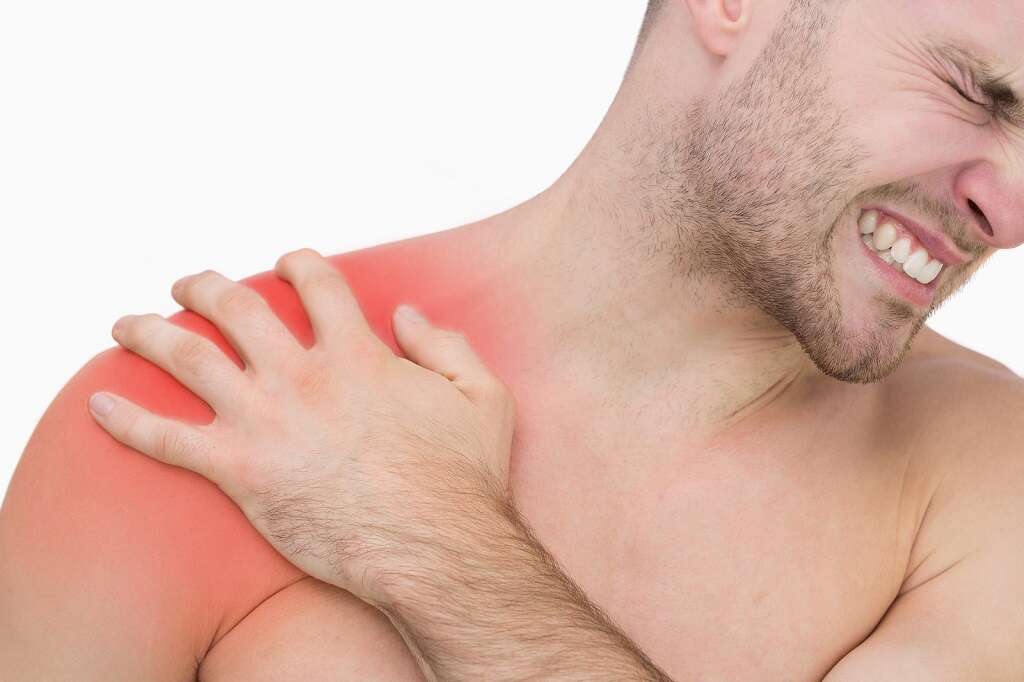
Clubbing
Clubbing is when the fingers and toenails take on the appearance of a chicken drumstick. The tips of the nails grow larger and curve around the tips of the fingers while the beds of the nails become spongy.
Clubbing is considered a classic symptom of pulmonary fibrosis and other lung diseases that decrease the oxygen level in the blood, such as lung cancer. However, the methods of measuring clubbing are unreliable, and they lead to widely different results.8Clubbing in Patients with Fibrotic Interstitial Lung Diseases. ScienceDirect.com | Science, Health and Medical Journals, Full Text Articles and Books, www.sciencedirect.com/science/article/pii/S0954611117303608

Leg Swelling
As pulmonary fibrosis progresses and the lungs begin to fail, the blood pressure in the lungs rises. This means the workload of the right side of the heart, which is responsible for pumping the blood from the lungs, increases. This eventually leads to right heart ventricle failure as it can no longer maintain the work rate.9Pulmonary Fibrosis: Symptoms, Stages, Causes & Life Expectancy. MedicineNet, www.medicinenet.com/pulmonary/fibrosis/article.htm
When the right side of the heart fails, fluid accumulates in the body. This can lead to leg swelling and fatigue.
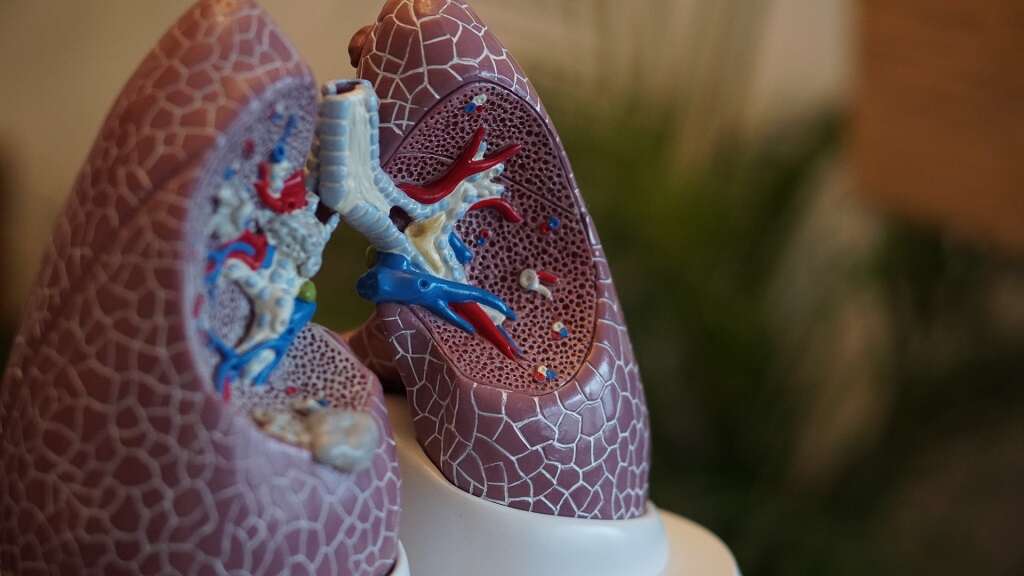
Loss of Appetite
Loss of appetite is associated with weight loss. Both are secondary symptoms of pulmonary fibrosis occurring in the later stages of the disease. It is associated with a poor prognostic outcome.
One reason for the loss in appetite is that as breathing worsens, more energy is used to breathe, resulting in nausea and contributing to the loss of appetite. Despite having lost their appetite, those with pulmonary fibrosis are encouraged to eat regular meals.10http://boehringer-ingelheim.com. Nutrition. Life with Pulmonary Fibrosis, 3 Dec. 2020, www.lifewithpulmonaryfibrosis.com/living-with-pulmonary-fibrosis/taking-care-of-yourself/nutrition

Cyanosis
Cyanosis occurs when the fingers and toes develop a bluish tinge due to insufficient blood circulation. This is not uncommon in pulmonary fibrosis. With more of the available oxygen supply being used to maintain breathing, other areas of the body become oxygen-deprived.11D’Souza, Gillian. Peripheral Cyanosis: Symptoms, Causes, Diagnosis, and Treatment. Medical and Health Information, www.medicalnewstoday.com/articles/322560
Oxygen therapy is usually the first treatment. The increased supply of pure oxygen should help the body compensate for the poor oxygen exchange occurring in the lungs.




